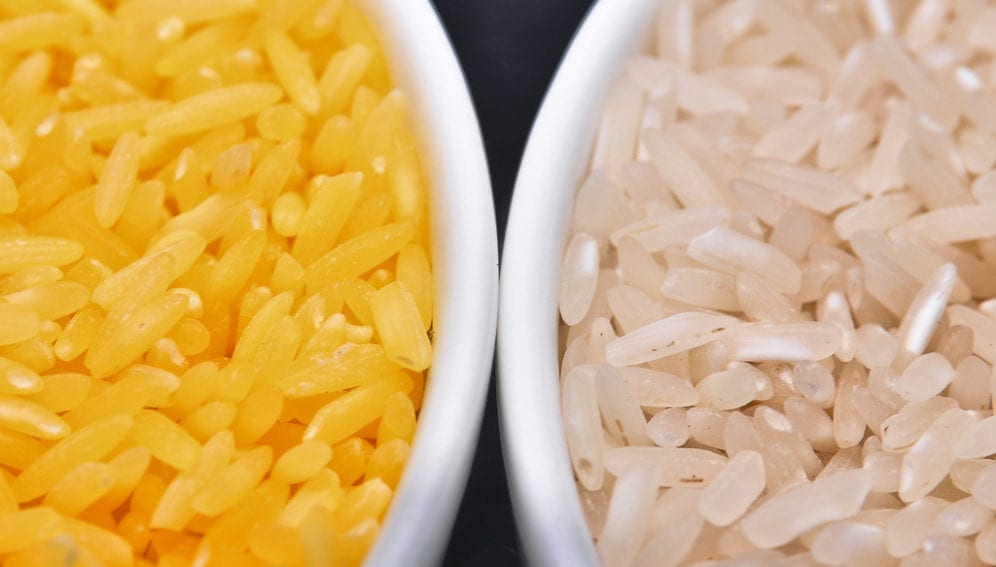By: Li Jiao
Send to a friend
The details you provide on this page will not be used to send unsolicited email, and will not be sold to a 3rd party. See privacy policy.
[BEIJING] Three Chinese researchers have been fired from their positions after they co-published a study in which 24 schoolchildren in China's Hunan province were fed genetically modified (GM) rice in 2008, Chinese authorities announced last month (6 December).
Yin Shi'an from the Chinese Center for Disease Control and Prevention (CDC), Wang Yin from the Zhejiang Academy of Medical Sciences and Hu Yuming from the provincial CDC in Hunan lost their jobs for "violating regulations, scientific ethics and academic integrity", according to a statement released by the CDC.
SPEED READ
- Three researchers have been sacked for their role in a trial in which children were fed GM rice
- The Chinese government says the trial was not approved by its biosafety committee
- Critics say the researchers are being used as scapegoats to hide poor enforcement of GM regulations
The three co-authored a paper together with Guangwen Tang, a researcher in a nutrition lab at Tufts University, that was published online on 1 August in The American Journal of Clinical Nutrition, and that used data from the controversial trial.
The study looked at 'golden rice' — a GM rice strain that contains higher levels of beta-carotene, a precursor for vitamin A — and found that the beta-carotene in the rice is as effective as pure beta-carotene in oil and better than that in spinach at providing vitamin A to children.
But Greenpeace East Asia expressed "alarm" in a press release over the publication of the study.
They said that the Chinese government had been informed in 2008 about the trial, when it assured Greenpeace that no GM golden rice had been imported for the trial and so it would not go ahead.
The study was based on work funded by the US Department of Agriculture, the US Institute of Diabetes and Digestive and Kidney Diseases and China's National Technology Research and Development Program.
Tufts University is investigating to see if the original study complied with Chinese, US and Tufts standards.
"As part of our review, we have convened a panel of distinguished academics from leading universities in the United States," Andrea Grossman, a spokesperson for the Tufts University Health Sciences Campus in Boston, tells SciDev.Net. "The panel's investigation is proceeding as expeditiously as possible in its effort to conduct a comprehensive and objective review."
Bao-Rong Lu, a researcher at China's Fudan University and a member of the National Biosafety Committee of China, says that the three fired researchers did not apply to the committee for approval to conduct the 2008 trial.
"The researchers did not respect Chinese regulations concerning the GM organisms [GMO] management and that's a very serious problem," he says.
Firstly, Lu says, since the researchers did not apply for permission to import the GM rice to China it was illegal to conduct the trial.
"Secondly, golden rice hasn't received a biosafety certification in China, so it is illegal to use these materials as food for the test in China," Lu tells SciDev.Net.
"China has a complete system of biosafety regulation for GMOs, including that for biosafety assessment trials. However, not all researchers follow the regulation," he says. "Some researchers are not aware of the system and trial procedures, or scientific ethics, and unfortunately this kind of scandal happened."
Some Greenpeace members think the sackings hide a larger issue with GM research in China.
"By sacking the three individual researchers, China is dodging the bigger issues: loopholes in the regulatory systems of GMO research and the bigger question of why we need GM crops at all," says Wang Jing, a campaigner with Greenpeace East Asia. "We know enough about their negative impacts on the environment but not enough about their long-term safety for humans."
Wang says the case is another reason for China to ensure that the 21 billion yuan (around US$3.3 billion) it is investing in GM research is used wisely.
Xue Dayuan, chief biodiversity scientist at the College of Life and Environmental Sciences at the Minzu University of China, says: "The three official researchers are scapegoats".
China has rules, laws and policy on GM, but a lack of supervision means no researchers have to obey the rules, adds Xue.














